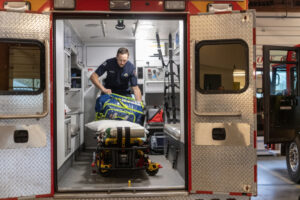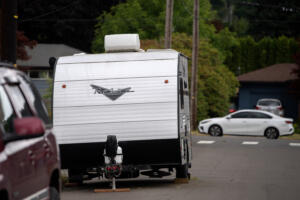Cities may use the federal funds to cover expenses related to six main categories: medical expenses; public health expenses; payroll for employees dedicated to COVID-19; expenses to facilitate compliance with COVID-19 measures; economic supports; and other COVID-19 expenses.
Camas staff recommends the city allocate $115,000 to the Camas-Washougal Fire Department for staffing costs related to emergency medical response as well as an additional $18,000 for ambulance air filter modifications and $17,000 for ambulance supplies. The staff also recommends an additional $146,355 be spent on fire department staffing costs under the “payroll expenses for employees dedicated to COVID-19” category.
Huber Nickerson said staff recommends the council approve spending $215,533 to pay for public works shift work, which allowed the city to alternate public work crews every other week to help prevent the spread of COVID-19 within the department and to retain a “back-up crew” in the event that a public works employee became ill or had to quarantine due to COVID-19.
Other public health expenses recommended by Camas staff include $38,200 for personal protective equipment, $27,000 for the city’s communications contract, $12,000 for janitorial staff and equipment, $8,000 to host Zoom meetings and $1,875 related to quarantined staff expenses.
Other recommendations for the CARES Act funds include $10,000 for the City Hall Annex drive-through services; $22,934 to pay for sick and family leave related to the pandemic; $5,404 for telework computer equipment; $75,000 for the city’s Support Local and Save Program, which reduced utility expenses for individuals who spent money at local Camas businesses throughout May; and $10,400 for the Camas Public Library’s helpline, which connected people in need of various pandemic-related services to resources and volunteers willing to pitch in.




